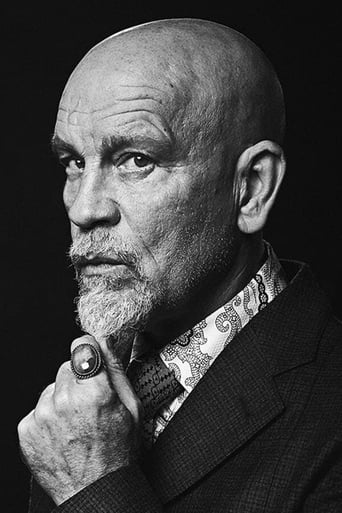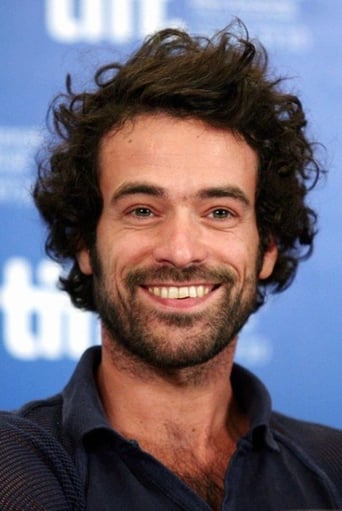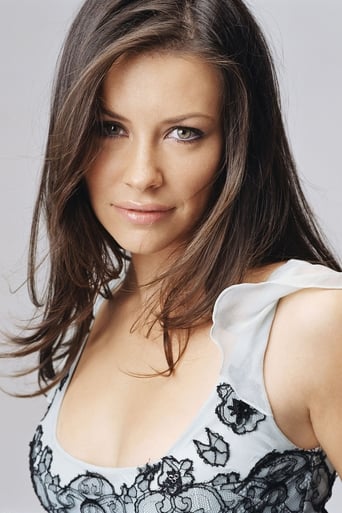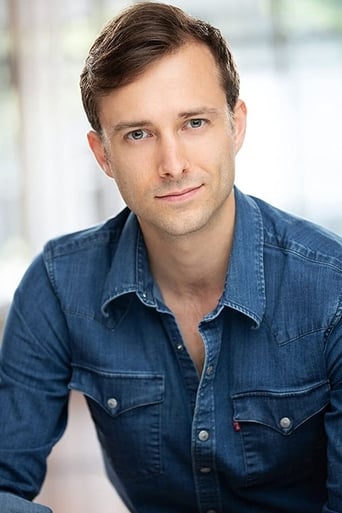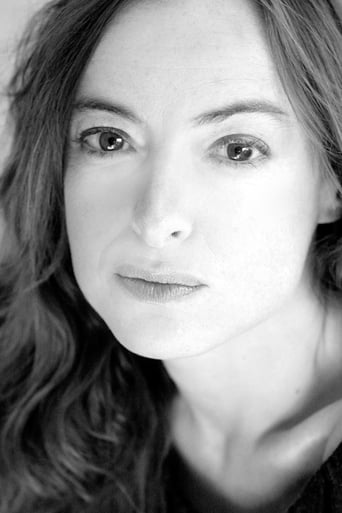AniInterview
Sorry, this movie sucks
FeistyUpper
If you don't like this, we can't be friends.
Humaira Grant
It’s not bad or unwatchable but despite the amplitude of the spectacle, the end result is underwhelming.
Geraldine
The story, direction, characters, and writing/dialogue is akin to taking a tranquilizer shot to the neck, but everything else was so well done.
Dr Jacques COULARDEAU
This film is dealing with death in the most surprising way possible.After Ray Kurzweil and all his consorts who pretend that in a few years we will be full of nano-robots that will make us eternal because death is a tragedy we have to get rid of, we have the spreading of Tibetan Buddhism that is founded on its famous Book of the Dead and the rebirth theory and there the tragedy becomes a drama, a melodrama even, a Broadway melodrama.Either you have enough merit in your "karma" and then you get into "nirvana" and your energy will merge into the cosmic energy of the universe, in otherwise BINGO! Or you will be reborn in one of six possible realms. The realm of the gods who will survive in bliss one full life to be reborn again when death comes again. The realm of the asura, divine again but jealous of the real gods but that will only be for one life. Then in the human realm and that's the only realm where you can hope to improve your karma and envisage the possibility of getting into nirvana. Then the realm of animals and no chance there to improve your karma. Then the realm of hungry ghosts, monsters who are thirsty and hungry for blood and fresh human flesh, cannibalism and vampirism, and the two together werewolves and wolfmen. Finally Hell itself where you will be tortured for a life time in your mental body but be sure that will be just as painful as if it were your physical body, except that your mental body never dies and recuperates at once. You just have the pain, over and over again.Since our western world has been weaned of any real religious belief and practice, since our religious rites are nothing but habitual actions that are part of the backdrop of our life, we are totally unarmed in front of that death and we are afraid, and we are panicky, and we are traumatized. What's more there are two eras in this world of ours.Before, when people lived less than fifty years, death was an everyday event and most of the time a child saw his or her grandparents die when he or she was less than five and the grandparents he or she knew then were those of other younger children. So we cried a little, we celebrated a little bit more than just a little and adults got drunk to forget, and then the show had to go on. Religions were there to make us believe that these dead people had only departed to go on the big journey to the other world, because there was another world.But after, when people live more than eighty years, it is not rare to have three or four generations in a family; for the parents to retire when their children are still in the process of training for a job one day. Then death has become a lot more unnatural and there is no solace in traditional religions. That's where Tibetan Buddhism comes into the picture and reinvents the Judeo-Christian myth of life seen as a valley of tears, the world as a sea of lachrymal fluids, and our lot as nothing but a sequence of dramatic tragedies. Then life is turned into some kind of permanent mourning not for death but for the death or deaths to come and every single event is seen in its end, in its termination, in the fact it will not last long. And we will suffer hell and blazes when they come to their end.That is efficacious to prevent depression and to get used or accustomed to the fact that any moment of bliss is a blitzkrieg against doom and suffering and death. It all started when a certain Rhys-Davids, the founder of the Pali Society at Oxford University, Great Britain, at the end of the 19th century and beginning of the 20th century, at the time of the British Empire, published his first Pali-English dictionary giving the false but perfectly Christian translation of '"suffering" for the central Buddhist concept of "dukkha." That Oxford scholar, probably a Don too, was wrong and his translation that Buddhism has been dragging behind itself ever since and all the time was just a misinterpretation of the word in canonical Buddhism, maybe because Rhys-Davids was there and then under the strong influence of the only Tibetan tradition. The Chinese Zen tradition would laugh at that naiveté. So Nathan, who has become a messenger of death because at the age of eight he died and was resuscitated by some doctor, knowing that his wife is going to die soon, drops his whole life in New York and comes back to his wife from whom he was at least separated, just to accompany her into death. That's just the most absurd story I have heard. Any decent human being, knowing he or she was going to die would certainly not require anyone close to him or her to drop out of society to become the slave servant of him or her, a plain dying relative. In other words we do not see the coming death from the one person who should be concerned, Claire herself, but only from the point of view of Nathan, the messenger who does not deliver the message, the coward who does not know anything but submission and acceptance. That is supposed to be equanimity but in fact it is plain absurdity. It is true if he did hand out the message to Claire, she would consider he is out of his mind, and maybe even harassing her. A court order would be at once called for to keep that dangerous maniac at certain distance of her, Claire, and their daughter.And yet some scenes are very powerful, lost in an ocean of wordy sentimentalism.Dr Jacques COULARDEAU
ssto
this is a well produced movie, with an interesting story. it is developing quite slowly and i like the somewhat 'open' ending.essentially, a movie of appreciation of life, love, forgiveness and letting go. mr.malkovich plays a good part, making up for the somewhat pale performance of the lead actor. this is probably the weakest point of this production - the lack of an outstanding lead. apart from that - great production, i especially liked the smooth camera work.it really needs very little to be a big movie, and while i cannot say i was thrilled watching it, i did watch with interest. i understand the book, that the movie is based on is quiet good, hopefully it has more depth and makes for more significant lead personage
rgcustomer
Here's yet another film that attempts to seriously suggest the existence of such things as life after death, clairvoyance, and whatnot, and have us get all misty-eyed about it.Instead of treating these Final Destination subjects as the comedy or horror or comedy-horror themes they rightly are, we're given a dull sort of mystery that's supposed to also be a love story. Who is going to die next? (Not a big surprise if you've seen more than two films in your life.) The fact is, we're ALL going to die. Nobody gets to live forever. And only those who take their own lives get to decide when they die. The rest of us gamble a minute at a time that we won't suffer a fatal brain aneurysm or get killed by lightning.The thing about death is that it's final. Sure, there's medical death, which can be survived, and is sometimes intentionally used for surgical purposes. But then there's the death we all know about, the death that is either embalmed, plastinated, burned, or allowed to rot, beyond which nothing ever returns. Ever. It will happen to all of us.If people actually knew when or how death was coming, this would be a markedly different world. There's a lot of money to be made in things like setting up your will the way you want it before you die, instead of what it was 10 years ago when you last revised it. Or trimming back your insurance policy so it doesn't go all the way to age 90. Or stepping down from an organization so it won't be left suddenly leaderless. Probably the best use is so that would-be assassins and other murderers are caught and prosecuted immediately after their (apparently unstoppable) crimes.Of course, this film's biggest mistake is in the idea that we really only need to care about people when they're about to die. Most of us know that's not true, and we don't need the supernatural to justify it.I've noticed some negativity about Romain's performance, but I thought it was reasonable for the role.
rpmmurphy
A carefully constructed and beautifully photographed film. Very successfully and thoughtfully utilizes diverse North American locations- from rustic summertime Quebec to New York City to White Sands, New Mexico and SW environs. Features classic Atom Egoyan narrative/plot/hook structure: that keeps you "learning" -up to the final frames- just what you have been watching. But...... the film is so thick- both thematically and with its sumptuous imagery- that by the time you get there (the end)- the reasonable 1hr45 screening time seems about 30min past due. You are worn out as if you've been force fed a fine cheese cake. Less would definitely be more. Also... the film comes so close to Egoyan as to practically- and I believe at one point actually- lift some lines directly from THE SWEET HEREAFTER (1997): "...Someone didn't do his job... There is no mystery..." - although here, the character's arc carries him beyond being imprisoned by this thinking.Overall: good, meaningful, thought provoking, flawed- underrated by the IMDb score.

